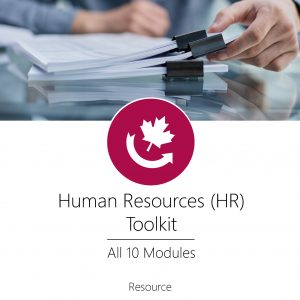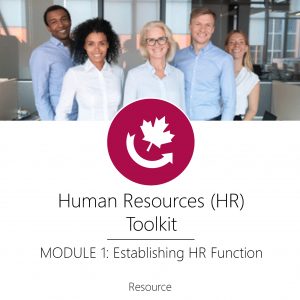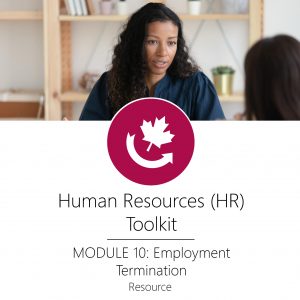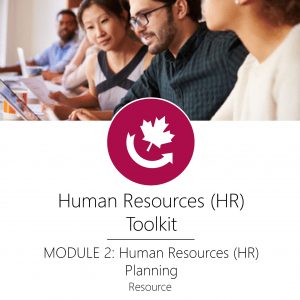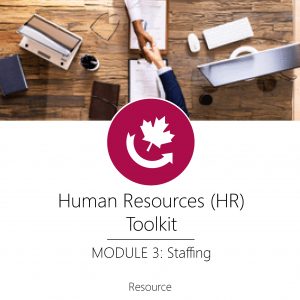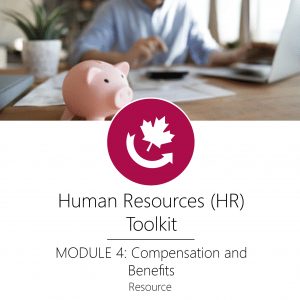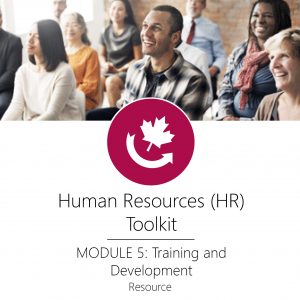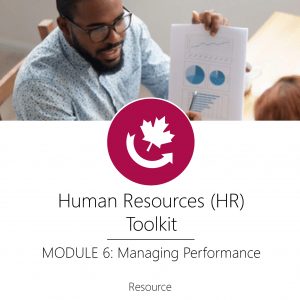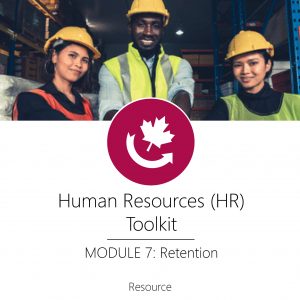-
Human Resources (HR) Toolkit
$899.00Backed by government and industry leading LMI (Labour Market Information), the FPSC’s HR Toolkit guides you through 10 streamlined modules. Everything you need to know to work in and run a business in Canada’s largest industry is at your fingertips. Each Module is easy to follow, straightforward and comprehensive. Complete with companion resources ready to use, and easy to adapt to your unique corporate branding. -
Human Resources (HR) Toolkit – MODULE 1: Establishing HR Function
$199.00This module includes an overview of the Human Resources Management function and how Human Resources (HR) systems, methods, processes and procedures are typically organized and implemented by owners, manager, supervisors, and contractors. Your own HR strategy, as well as your HR processes and procedures will depend on the size and format of your workforce, as well as the goals of your organization. -
Human Resources (HR) Toolkit – MODULE 10: Employment Termination
$199.00Involuntary termination is when an employer fires or terminates an employee due to poor performance, just cause, for economic reasons, or for any other reason for which they feel the employee’s services are no longer required. While dismissing an employee is never pleasant, it needn’t be stressful. You can conduct a termination in a professional manner and minimize the risk of legal action simply by being prepared and following best practices. -
Human Resources (HR) Toolkit – MODULE 2: Human Resources (HR) Planning
$199.00HR planning is a process managers use to make decisions about the best ways to allocate an organization’s operations budget and its people resources. As part of the HR planning process, managers review business objectives to forecast an organization’s demand for employees and observe market conditions to anticipate the future supply of talent. -
Human Resources (HR) Toolkit – MODULE 3: Staffing
$199.00In today’s competitive climate, the processes an organization uses to find, screen, select and onboard new employees are critical to its success. An organization's leadership team, its hiring managers, and its HR support team, need to work in a coordinated effort to maintain a positive image while working through all steps of the hiring process. -
Human Resources (HR) Toolkit – MODULE 4: Compensation and Benefits
$199.00Maintaining equitable compensation and benefits is a key factor for employee satisfaction and for attracting, retaining and motivating employees. This module examines the process for establishing fair and effective compensation, rewards and benefits programs. -
Human Resources (HR) Toolkit – MODULE 5: Training and Development
$199.00Employee Training and Development is used by organizations to develop the knowledge, skills and abilities of employees in its workforce. It's an investment in the people who are a fundamental part of the business and who make an impact on the quality, costs and value of products and services being offered to customers. Sound Training and Development Programs are designed with the goal of making a "return on investment" (ROI) towards attaining the organization's goals or performance objectives. -
Human Resources (HR) Toolkit – MODULE 6: Managing Performance
$199.00An effective performance management system helps the leadership team, managers and employees communicate goals, share information, foster learning and development, and explore career progression opportunities. Organization goals and objectives are supported on a day-to-day basis with effective employee communication designed to manage workplace conflict as it arises and with well-designed Disciplinary Action Processes and Employee Reward Programs. -
Human Resources (HR) Toolkit – MODULE 7: Retention
$199.00Managing your business for employee retention involves strategic actions to keep employees satisfied, motivated and engaged so they remain employed and fully productive with your organization. A comprehensive employee retention program includes measuring turnover, taking stock of employee satisfaction and understanding why employees leave the organization. Daily practices that foster a healthy work environment and effective communication support these efforts and ultimately contribute towards employee retention.


